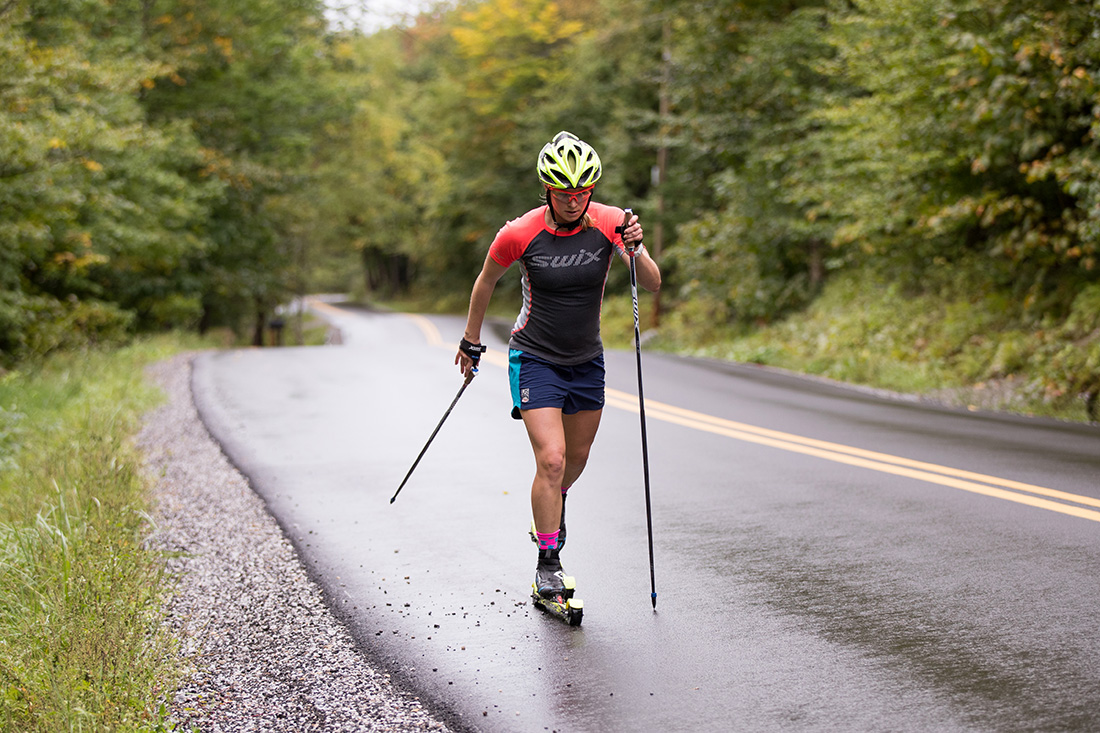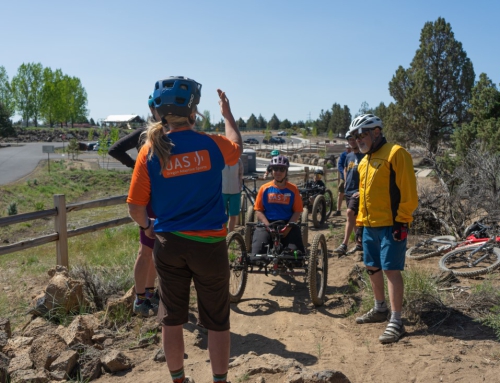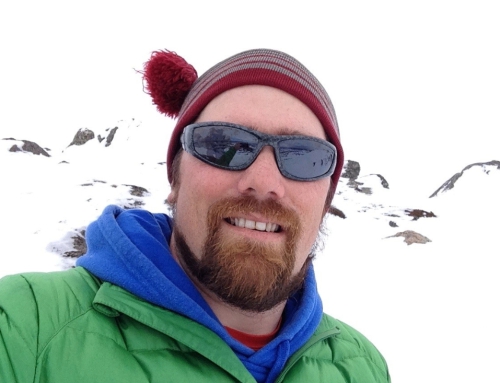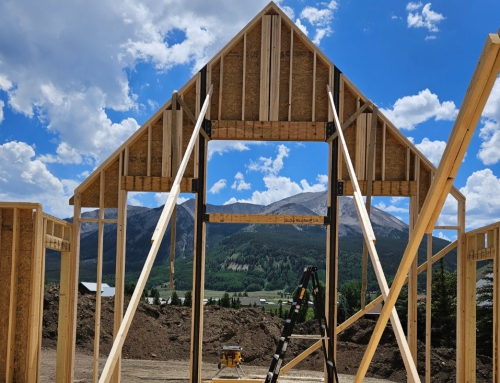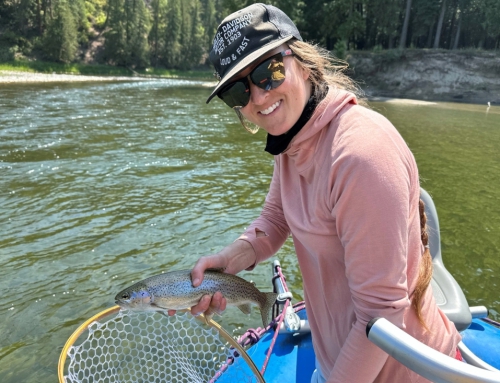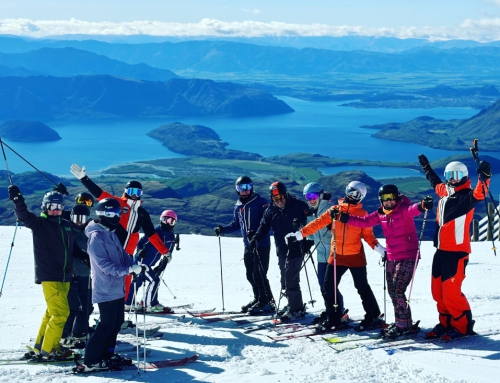32 Degrees: Meet Jesse Diggins
This article originally appeared in the Spring 2020 Issue of 32 Degrees Magazine. Log-in to read more articles.
Jessie Diggins, a professional cross-country skier from St. Paul, Minnesota, is perhaps best known for winning the United States first-ever women’s cross country Olympic Gold Medal at the 2018 Pyeongchang Winter Games. Now entering her ninth season on the U.S. Cross Country Ski Team, Diggins has placed in 21 World Cup races during her career.
Here, former PSIA-AASI National Team Member Brennan Metzler talks with Diggins about her skiing, the nature of training and racing, and how she sustains her joy for the sport.
Brennan: What is your first memory of sliding on snow?
Jessie: In my first memories I wasn’t even the one sliding on skis – I was in my parents’ backpacks along for the ride as they skied. They loved being outside and enjoying winter. When I got a little older, they got me my own pair of tiny little skis and I was able to follow them around a bit.
Then we joined the Minnesota Youth Ski League – they teach little kids how to ski, and teach families how to help kids enjoy the sport. Moms and dads are out on the trail while their kids are playing games and learning to ski and balance through play. The whole family is in on it, which I think is really cool.
B: Something that sticks out about you is the joy you carry in your training and skiing. What have you done to continue to cultivate that joy, even after all of these years of focused training?
J: It’s a hard question, because if you want to be successful at the highest level you have to work really hard and have a training plan. But for me, it’s finding ways to keep it fun. When I go to the gym, I’m trying to come up with new balance challenges when I do core work. Even if I’m going for an easy two-hour ski with friends, having teammates along or my boyfriend on a bike helps. There a ton of ways to keep training creative and fun.
You do have to push really hard, but that doesn’t have to mean training is not fun. Joy and hard work are not mutually exclusive.
B: What are your unique traits as a skier?
J: Nothing about me really sticks out. But what I am good at is digging really deep – getting the most out of what my body is capable of. That’s my invisible super power. And everybody has something like that, something they are so uniquely good at that makes them perfectly suited for a task.
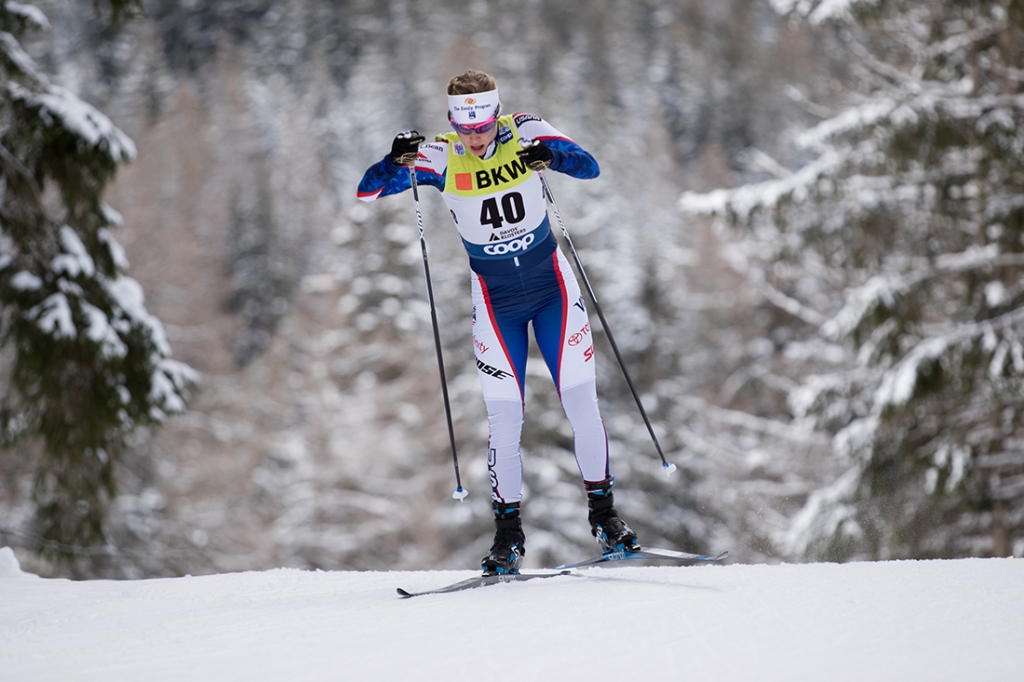
B: What are you working on in your skiing?
J: I’m always working on something, which is what makes the sport interesting – you’re never at the point where you’re like, “I’m perfect, I’ve got this, it’s cool.” No one ever gets to the point where they aren’t working on something.
I’m 28 years old, I’m at a point in my career where I need to be honing my backup technique. Things don’t go perfectly in a race. You should always have a race plan – how you want to ski it – but in 99 percent of my races I don’t follow my perfect race plan. Being able to think during a race, change your plan, be flexible, and adapt is huge.
B: You’ve experienced success on the biggest stages in cross country skiing. What have you learned from your Olympic and World Cup Experiences… from winning a gold medal?
J: People talk about your baseline level of happiness, and how big life events don’t really shift that line. I’m a pretty happy person in general. Don’t get me wrong, there are so many life perks of winning the Olympics … but I didn’t suddenly become happier. Winning a gold medal didn’t change my day-to-day life or solve all of my problems.
It’s chasing down a goal that matters. That’s gonna stay with you and fulfill you. Whether or not you get to the ultimate goal is not as important as how you try to chase it down.
What I really love is training hard and having fun and pursuing excellence with my teammates. That’s what made me feel awesome before the gold medal, and that’s what makes me feel awesome after it.
We race to find the best in ourselves. We don’t necessarily race to win. We race to chase after the ultimate perfect performance, but not necessarily to beat someone else. I really believe that. If you race just to win, you’re going to be so disappointed because the medal ceremony lasts 10 minutes and then your life is more or less the same.
There’s a lot you can do with a gold medal, but who you are as a person doesn’t change. You still have to work on that.
B: I’ve seen you in the coaching role a few times lately. What’s it like to switch from athlete to coach?
J: I think coaching is super cool because it forces you to think about the technique of what you are teaching. It means I have to have an amazing understanding of the subject – it’s not like I can just say, “Do what I do.” Coaching asks me to communicate to different people, to help them understand things in their language.
Coaching is a game, taking the puzzle pieces of how to share what you have learned about a sport and bringing it to the people in front of you. Yeah, it can be challenging, especially teaching someone who hasn’t done the sport before, but it’s even more rewarding to see them succeed.
Photo Credit: Reese Brown courtesy of U.S. Ski & Snowboard.

